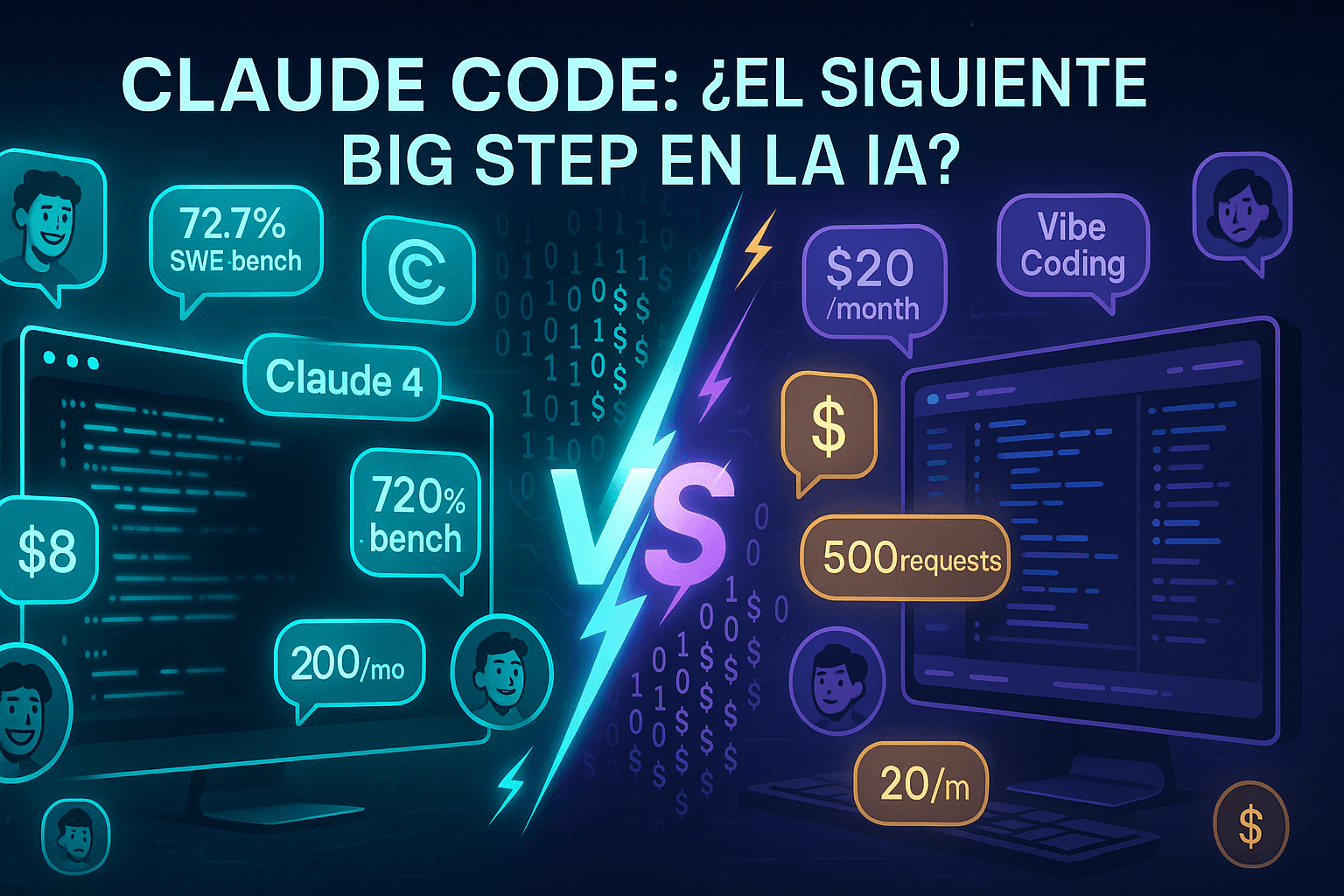
Claude Code has arrived in the development world with a bang, positioning itself as a tool that promises to revolutionize how we write code. With Claude 4 models scoring 72.7% on SWE-bench and boasting extended reasoning capabilities, Anthropic’s offering is generating both excitement and concern over its pricing.
But the competitive landscape shifted dramatically when Cursor removed its 500-request monthly limit. Are we witnessing the next evolutionary leap in AI tools, or did the pricing war just rewrite the rules?
The AI coding scene changed drastically when Anthropic cut Windsurf’s direct access to Claude 3.x models with less than five days’ notice. The move, apparently triggered by OpenAI’s $3 billion acquisition of Windsurf, marked a turning point in the industry.
Anthropic’s strategic calculus was clear: “It would be odd for us to sell Claude to OpenAI,” said Jared Kaplan, Anthropic co-founder. The decision didn’t just affect Windsurf—it sent shockwaves through the developer community that had come to rely on that integration.
Claude Code, launched in early 2025 as a research preview, benefited directly from the timing of this shake-up. While Windsurf struggled to maintain access to Claude models, Claude Code went generally available alongside the announcement of Claude 4, offering direct and unrestricted access to Anthropic’s most powerful models.
Developers are split, and the reactions range from near-evangelical praise to sharp criticism:
The “Vibe Coding” Evangelists:
David Richards, a principal software engineer, shared: “Claude Code is a quantum leap forward. I was skeptical of AI coding assistants because they often created technical debt, but Claude Code changes the game completely.”
One ex-FAANG developer with over 30 years of experience revealed that Claude Opus 4 solved a bug that had eluded him for nearly four years—after some 200 hours of intermittent debugging. In a two-hour session and 30 prompts, Claude Code identified an architectural flaw that had gone unnoticed for years.
The Realist Skeptics:
“All these incredible success stories always seem to come from Twitter posts. I find value in having it handle tedious refactors or generating commands, but this whole AI taking the wheel narrative doesn’t feel real,” commented one Hacker News user, echoing the caution of many seasoned developers.
“Vibe coding” — defined as “offloading the mental effort you used to spend on traditional implementation work to an AI” — has become the current flashpoint. This looser, more conversational approach to development is dividing the community:
🧩 Integration
→ Claude Code: Terminal + IDE extension
→ Cursor: Native IDE (VS Code fork)
🧠 Model Access
→ Claude Code: Direct access to Claude 4 Opus/Sonnet
→ Cursor: Multiple models with markup
📂 Context Handling
→ Claude Code: Full local codebase access
→ Cursor: Excellent IDE-based context
⚙️ Automation
→ Claude Code: Agentic – can run commands
→ Cursor: Mainly suggestions
🚨 Crucial Update: Cursor completely removed its 500 request/month limit on the Pro plan — a radical shift in the cost equation.
The equation has flipped entirely. Previously, Greg Baugues reported that 90 minutes of Claude Code use cost about $8, whereas under Cursor Pro’s old model, 50 requests cost around $2.
Now, with unlimited Cursor Pro:
“For most people, the question isn’t whether Claude Code is technically better—it’s whether it’s worth the price when Cursor now offers unlimited use for just $3 more per month,” said one developer on the Cursor forum.
The new reality:
For typical developers:
For power users: Developers who previously spent $100+ per month on Claude Code can now use Cursor unlimitedly for $20/month — roughly 80% savings.
The old complaint:
“My costs are exploding with Cursor Pro. I mainly use Claude Sonnet 4… Cursor Pro: 500 requests/month vs. Claude Code Pro: 45 every 5 hours.”
Now:
Cursor Pro offers unlimited requests with reasonable limits, removing that constant request-count anxiety.
Claude Opus 4 and Sonnet 4 introduced groundbreaking capabilities:
The memory feature is particularly striking: “When developers give Claude access to local files, Opus 4 becomes adept at creating and maintaining memory files that persist key information.”
The Model Context Protocol (MCP) is the unsung hero:
“It allows Claude to understand the developer’s environment by injecting relevant tools, file systems, and context directly into its reasoning process.”
This isn’t just an incremental UX improvement—it’s a fundamental reimagining of how AI can embed itself within the developer workflow.
Cursor Pro is now the obvious choice:
Claude Code as a supplement:
Hybrid strategy recommended:
Competitive pressure could push Anthropic to introduce unlimited or flat-rate plans.
Claude Code doubles down on premium capabilities (Claude 4, MCP) while Cursor captures the mass market.
Smaller players disappear, leaving 2–3 dominant tools with differentiated pricing models.
A Hacker News developer summed it up perfectly:
“Cursor removing the 500-request limit completely changed my perspective. Now I only use Claude Code for the really complex cases that need Claude 4’s horsepower.”
The new reality:
The AI coding revolution is here — but Cursor’s move to unlimited use fundamentally changed the rules. It’s no longer just a question of technical excellence; it’s about economic accessibility and pricing philosophy.
The real question now isn’t just “Which tool is better?”
It’s “Which pricing model fits the way you actually work?”
What do you think of these changes? Have you switched from Claude Code to Cursor Pro since the unlimited update? The conversation about the future of AI-assisted coding has only just begun.